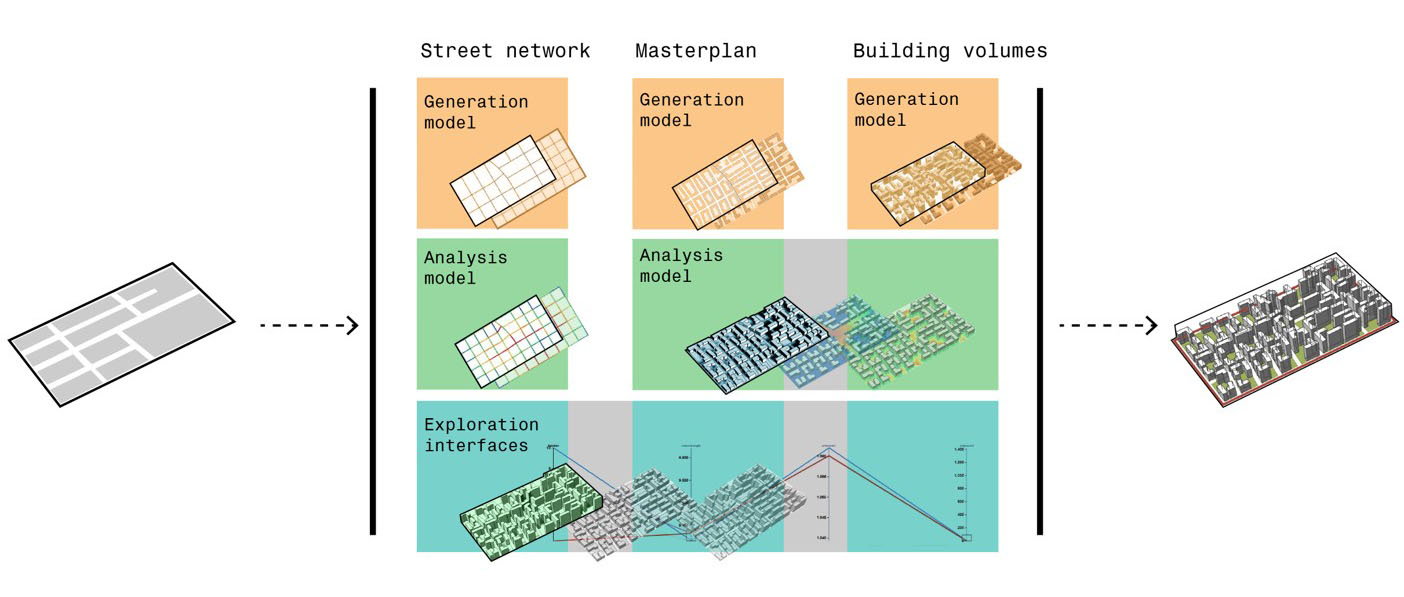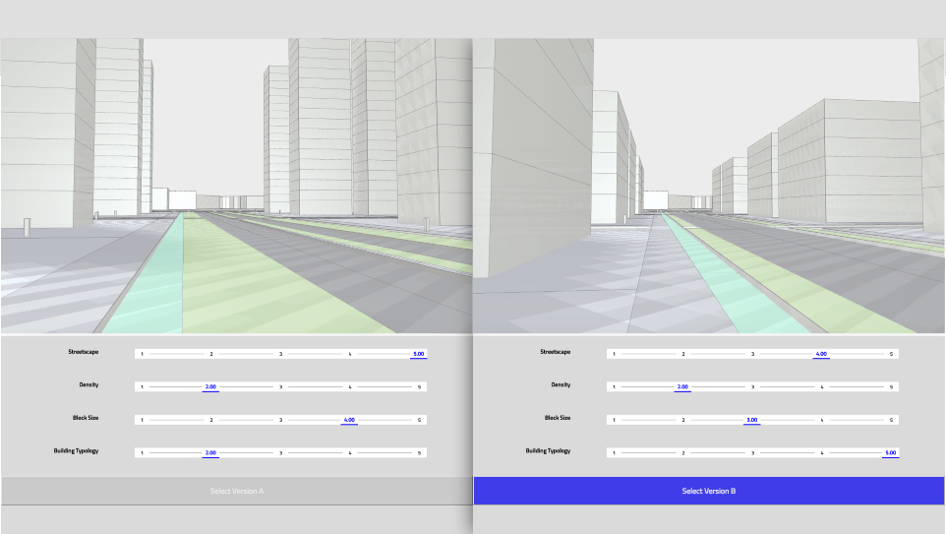This post documents our research in the Cognitive Design Computing (CoDeC) workstream of the Big Data Informed Urban Design and Governance project at the Future Cities Lab in Singapore with status July 2018. It is structured in our research on generation, analysis, and exploration methods. We demonstrate our methods in the context of the synergy project Waterfront Tanjong Pagar in Singapore. In this context we used partially inputs from other FCL research groups. The idea of Cognitive Urban Design Computing is to combine unique human design competences with computational methods for the generation, analysis, and exploration of urban designs. The loop of analysis and generation methods is the basis for automated spatial synthesis. Design space exploration methods are used for the presentation and selection of synthesized design variants.
Research Team: Katja Knecht, Yufan Miao, Kateryna Konieva, Pol Foreman, Reinhard Koenig (contact author), Gerhard Schmitt, in collaboration with Dietmar Leyk.
Introduction
The image illustrates the framework for Cognitive Urban Design Computing.

Overview of the spatial synthesis process for Waterfront Tanjong Pagar
Generation and Analysis
Kateryna Konieva
We use the Waterfront Tanjong Pagar area for demonstrating the automated loop of generation and analysis of urban design variants. The video below shows the parametric design workflow with various analysis methods integrated in the spatial synthesis process. Currently we use network analysis, economic potentials, view analysis, as well as solar and shadow analysis.

Optimization
Yufan Miao
For the automatization of the spatial synthesis process, we use evolutionary multi-criteria optimization algorithms. Therefore we needed to develop an appropriate data structure to represent spatial configurations (streets, parcels, and buildings), which allows the application of evolutionary operators (crossover, mutation, and adaption).


Design Space Exploration
Katja Knecht
The spatial synthesis process we presented allows to generate a large number of urban design variants. To present these variants in a meaningful way to urban planners or stakeholders, we explore the usage of design space exploration tools and new interface concepts. The aim is to provide a platform to discuss, compare and evaluate variants based on analysis results in order to allow stakeholders to take informed design decisions.
Comparison of design alternatives using the beta.speckle online interface.
The following video shows how design variants can be filtered according to specified design and performance characteristics in the Design Explorer application:
How design alternatives can be assessed and evaluated in the Speckle online viewer, e.g. by comparing analysis results such as shading and sunlight hours analysis, can be seen in the following clip:
Building Typologies
Pol Foreman
In collaboration with the FCL synergy project Waterfront Tanjong Pagar led by Dietmar Leyk, we developed a parametric urban masterplan, which allows the generation of adequately detailed urban block typologies and buildings.
Presentation
Big Data Informed Urban Design and Governance
The Cognitive Design Computing (CoDeC) workstream is part of the Big Data Informed Urban Design and Governance project at the Future Cities Lab in Singapore. The video below gives an overview of all workstreams of the project and how they are related to each other.
Acknowledgement This research was conducted at the Future Cities Laboratory at the Singapore- ETH Centre, which was established cooperatively between ETH Zurich and Singapore’s National Research Foundation (FI 370074016) under its Campus for Research Excellence and Technological Enterprise programme (CREATE).
Related Publications
Sorry, but the selected Zotpress account can't be found.



I am so impressed by this project. How can I get the password to see the content?Should I register some specific websites or do some tasks?
Thanks!
Most of the techniques that are used here are introduced in the open courses on our OTP: https://otp.uni-weimar.de/
Best regards
Reinhard